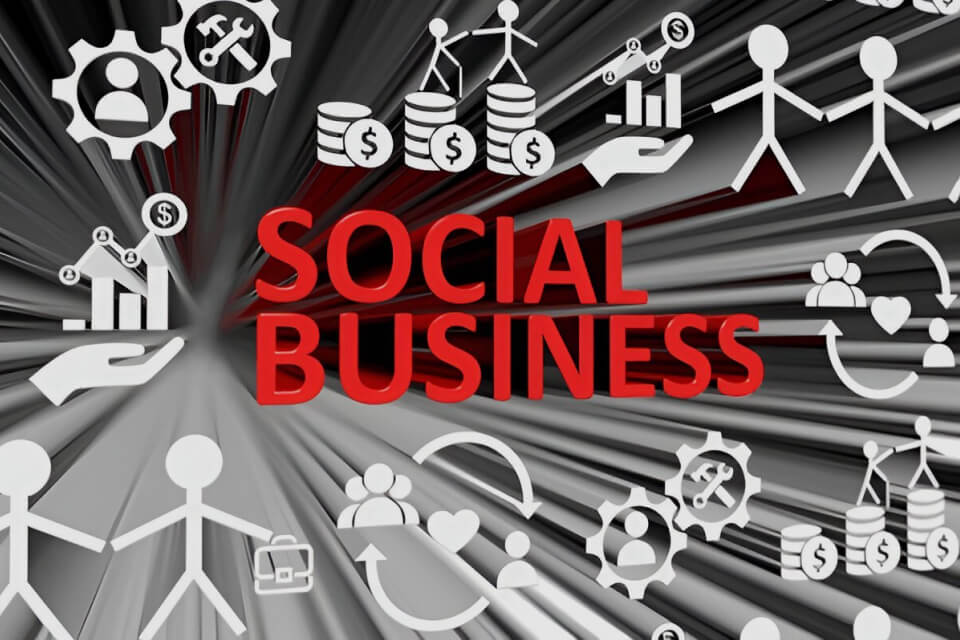- Introduction
- Role of Microfinance in Social Enterprise Development
- Success Stories of Social Enterprises with Microfinance
- Challenges Faced by Social Enterprises
- Lack of Financial Literacy and Business Management Skills
- Benefits of Microfinance for Social Impact
- Future Trends in Social Enterprise Financing
- Frequently Asked Questions (FAQs)
- Conclusion
Introduction
Microfinance has a large influence on African social enterprises by empowering them through providing the financial help they need to succeed. These enterprises are designed to solve problems in society and make profits too. Without access to loans and financing, most of them collapse.
This article summarizes the impact of microfinance on African social enterprises and how it empowers and makes them effective in their societies. By being aware of what microfinance is and how it influences African business growth, we are able to see how it creates greater opportunities for the economic and social future.
Definition of Microfinance and Social Enterprises
Microfinance is the provision of small loans, savings, and other financial services to individuals and enterprises that are unable to obtain assistance from traditional banks. It promotes the growth of small enterprises and improves people’s livelihoods. Microfinance in Africa has enabled many small enterprises to prosper.
Social Enterprises are businesses that try to solve societal problems and earn profits simultaneously. They venture into sectors like education, health, and the environment. In Africa, such businesses are crucial as they help in developing communities and the standards of living.
Importance of Microfinance in Africa
Microfinance is very important in Africa. First, the majority of small-scale businesses and social enterprises in Africa do not have enough funds to scale up. Also, microfinance provides the credit and support they need to stay afloat and grow. It also helps those who do not have access to banks to acquire financial services.
Without microfinance, the majority of social enterprises would not be able to continue with their operations. It helps them serve more people and bring real change into society.
Purpose of the Article
This article discusses the impact of microfinance on African social enterprises and how it helps them develop and succeed. It also explains how microfinance helps develop the African economy.
Through the understanding of microfinance, you can learn how to start a microfinance business or finance social enterprises that make a difference. The role of microfinance in African SME development is great as it helps develop and grow communities. Microfinance is not just about lending. It’s giving businesses and people the chance to create a better tomorrow.

Role of Microfinance in Social Enterprise Development
Access to Capital for Social Enterprises
Microfinance helps small enterprises, like social enterprises, raise the money they need to start or grow. Banks do not lend easily to most small businesses in Africa, but microfinance institutions (MFIs) lend them microloans – small amounts of cash to help them continue.
For example, a farmer can get a microloan to buy seeds and agricultural equipment. This allows them to grow more crops, earn more income, and feed their family. As a result of microfinance, social enterprises have the ability to expand businesses, employ more staff, and tackle important issues like unhealthy living and illiteracy.
Financial Inclusion and Economic Empowerment
The majority of Africans, especially women, are unbanked, that is, inaccessibility to the services of a bank. Microfinance makes it possible for them to borrow money to start their own businesses. This has made 70% of microcredit customers women. Generally, women find it difficult to get bank loans, but MFIs trust them because studies have shown that they repay more often than men.
By helping those who do not have access to banks, microfinance helps them start businesses and improve their standards of living. Microfinance also significantly contributes to African SME growth, in the sense that small-sized businesses are supported to develop into big companies.
Enhancing Business Sustainability and Growth
Microfinance is beyond only lending money, but it also teaches entrepreneurs how to handle money and grow their businesses. Most MFIs offer training courses for businesspeople to allow them to better manage their enterprises.
For example, a business that sells clean water for drinking can get a loan and learn how to sell their product to additional people. This way, the company will last long and continue to help the community.
Other business owners even use what they have learned to train how to start a microfinance business so that other individuals in their community can get loans and prosper.
Microfinance is important in Africa because it offers access to capital to businesses, helps the unbanked, and facilitates long-term business growth. Through microfinance, more people are able to start businesses, improve their standards of living, and make their communities improved.
Success Stories of Social Enterprises with Microfinance
Case Studies of Microfinance-Backed Social Enterprises
Microfinance has empowered many social enterprises in Africa to grow and leave a mark. For example, in Tanzania, female farmers have used microloans to buy tools and improve their farms. This has allowed them to boost their food harvests and earn a higher income. In Ghana, owners of handcrafted products have used microfinance to grow their enterprises and sell to larger markets.
The most benefited sectors by microfinance are farming, retail, and manufacturing. These small businesses are usually run by small business people who cannot secure funding from big banks. The impact of microfinance on African social enterprises can be seen as it allows businesses to grow and develop new ideas.
Social and Economic Impact
Microfinance has a great impact on the economy and society in Africa. It generates employment and improves lives by providing people with loans. For example, in rural areas, small businesses supported by microfinance have employed more people, reducing unemployment. In Kenya, microfinance has helped communities build schools and health centres, improving the life of everyone.
Microfinance also helps in eradicating poverty. It helps women and youth who are not bankable, giving them a chance to start and grow their businesses. This makes the economy stronger and more inclusive.
Role of Microfinance Institutions (MFIs) in Success Stories
Microfinance Institutions (MFIs) are a very significant help to social enterprises. They have microloans and savings accounts and also offer business education to help people manage their finances better. MFIs partner with banks to give small businesses in rural towns the funds they need to expand.
Collaborations among MFIs, governments, and NGOs reinforce microfinance further. These collaborations not only provide funds but also guidance and tools to help businesses expand. The microfinance role in African SME development is very important because it helps businesses flourish and gets more people into the economy.
The impact of microfinance on African social enterprises is revolutionary. It provides funding to small businesses, allows communities to grow, and creates other job opportunities. Through the support of MFIs and other institutions, microfinance keeps on empowering companies to grow, reduce poverty, and improve lives across Africa.

Challenges Faced by Social Enterprises
Social enterprises in Africa help communities by solving important problems, but they also face many challenges. One of the biggest problems is getting enough money to grow and succeed. Below are some key challenges they face and ways to improve the situation.
Limited Access to Adequate Funding
Many social enterprises struggle to get loans or investments because they do not have enough collateral or are not correctly registered. In Africa, the funding gap for small businesses is huge—over $140 billion is still needed to support them. Without enough money, these businesses find it hard to expand and make a bigger impact in their communities.
High Interest Rates and Repayment Pressures
Some social enterprises turn to microfinance for support, but the interest rates are often too high. This makes it difficult for them to repay their loans while also trying to grow their businesses. If they cannot keep up with repayments, they may struggle to survive.
Reducing interest rates and allowing more flexible payment plans would help these businesses stay strong.
Regulatory and Bureaucratic Hurdles
Many governments have complicated rules that make it difficult for microfinance institutions (MFIs) to support social enterprises. Some businesses find it hard to meet government requirements or go through long paperwork processes.
If governments introduced tax holidays or made it easier for MFIs to operate, more businesses would benefit from financial support.
Lack of Financial Literacy and Business Management Skills
Many social entrepreneurs do not have the right knowledge to manage their finances properly. Some do not know how to budget, plan for the future, or use money wisely. Without these skills, many businesses make mistakes that affect their success.
Offering training programmes and mentorship would help them grow stronger. MFIs can also provide business education alongside their financial services.
Microfinance is very important for African social enterprises, but challenges like lack of funding, high interest rates, strict regulations, and poor financial knowledge must be solved. If governments and MFIs work together to provide better support, social enterprises will be able to grow and create a bigger positive impact in their communities.
Benefits of Microfinance for Social Impact
Microfinance Institutions are very beneficial for social impact. Contrary to the myopic view that MFIs are only for easy access to loans, these institutions are also impactful in the lives of community members. They are focused on improving not just the lives of individuals but communities as a whole.
Poverty Alleviation and Improved Livelihoods
Microfinance helps to reduce poverty by giving low-income people access to small loans, savings, and insurance. It is difficult for most people to borrow money from traditional banks, but microfinance helps them start or expand their small enterprises. For example, farmers use microloans to buy better seeds and tools, which help them harvest more crops and generate higher revenues. When people have consistent income, they can manage food, education, and healthcare. This not only helps individuals but also the entire community.
Economic Empowerment of Women and Youth
Microfinance is very important for women and youth, especially in Africa. MFIs have bridged gender gaps in the economic sector. Before, the majority of women-owned businesses found it difficult to acquire money to grow, but microfinance saves them by lending them money and support. Women also pay back their loans on schedule, so they are reliable borrowers.
Young entrepreneurs who want to start businesses also get loans and training from microfinance institutions (MFIs). This gives them opportunities to create employment and improve their livelihoods. Microfinance, therefore, plays an important role in African SME growth.
Strengthening Local Economies
Microfinance drives economic development by granting local enterprises access to capital and financial services. When businesses grow, they hire workers and contribute to the local economy. In some African countries like Ghana, for example, small savings groups combine their money as collateral to obtain loans. This allows them to invest in their business and expand. Microfinance helps bridge the connection between small enterprises and the economy at large, so more people have chances to succeed.
Promoting Innovation and Social Change
Microfinance allows people to try out new business ideas without fearing failure due to lack of money. The majority of enterprises that tackle massive social problems—like affordable healthcare or renewable energy—are reliant on microfinance. MFIs also provide training and guidance, which allows entrepreneurs to operate their companies more efficiently. Microfinance supports communities to develop and prosper by financing innovative businesses.
The impact of microfinance on African social enterprises transforms lives. It takes individuals out of poverty, empowers women and young business owners, strengthens domestic economies, and fosters innovation. This enhances people’s lives as well as the lives of their communities and creates a better future for Africa.

Future Trends in Social Enterprise Financing
Growth of Digital Microfinance and Mobile Banking
Mobile banking is changing how people are accessing financial services in Africa and has been integrated into the microfinance banking system. With a nearly 90% penetration of mobile phones, it has been simpler for small-scale businesses and social businesses to get access to finances. In Kenya, for example, mobile money helped increase access to finances from 26.7% in 2006 to 82.9% in 2019. So, more people are now able to get loans, pay, and manage money via their mobile phones.
Expansion of Impact Investing and Blended Finance
Most investors nowadays fund social enterprises through impact investing, which causes companies to grow while making society better. Another approach is through blended finance, where public and private capital are combined to fund small businesses. Tools like first-loss guarantees help to reduce risks, making African SMEs more attractive to investors. This is important for the achievement of the SDGs and AU’s Agenda 2063, which aim at Africa’s long-term sustainable development.
Government Policies and Support for Social Enterprises
Governments are introducing new policies that can facilitate social enterprises to access capital. They are working with private financiers to create a more supportive environment for impact investing. In 2015, the Cape Town Declaration on Impact Investment in Africa was introduced. It is a declaration that binds investors and governments to collective action to promote social business.
Role of Blockchain and Fintech in Microfinance
Blockchain technology can potentially secure financial transactions and render them more transparent. Fintech innovations, including mobile loans and electronic savings, are also helping social enterprises manage their finances. Research shows that 83% of microfinance institutions now offer mobile money transfers, and 55% offer mobile loan applications. New technologies help businesses access capital and grow more comfortably.
The impact of microfinance on African social enterprises will continue growing. With every new emerging financial product, it will play a core role in African SME growth.
Frequently Asked Questions (FAQs)
1. How does microfinance help social enterprises in Africa?
Microfinance helps social enterprises by providing them with the funds they need to start or grow their businesses, allowing them to create jobs and improve communities.
2. Who benefits from microfinance?
Small business owners, especially women and young entrepreneurs in Africa, benefit the most from microfinance as it gives them the chance to start their own businesses.
3. What are the challenges of microfinance in Africa?
Some challenges include high interest rates, lack of financial literacy among borrowers, and sometimes the risk of over-indebtedness where borrowers take on too much debt.
4. How does microfinance support SME growth in Africa?
Microfinance supports Small and Medium Enterprises (SMEs) by providing necessary capital for expansion, which helps these businesses grow and contribute more to the economy.
5. What role do governments play in microfinance?
Governments can support microfinance by creating policies that encourage lending practices and providing regulatory frameworks that protect both lenders and borrowers.
Conclusion
In conclusion, the impact of microfinance on African social enterprises is significant as it empowers individuals by providing essential financial resources needed for growth and development. This not only aids in poverty alleviation but also promotes entrepreneurship among marginalized groups like women and youth. By supporting SMEs through accessible funding options, we see an increase in job creation which ultimately strengthens local economies across Africa. Understanding how to start a microfinance business can further enhance this positive cycle of growth within communities.



